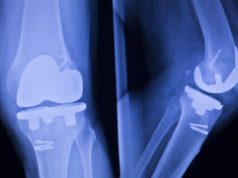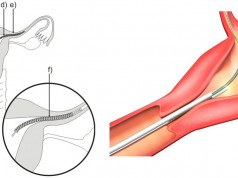
It is hard to turn on the television without hearing something about the problems associated with transvaginal mesh implants. Transvaginal mesh is a net-like substance that is used to treat several conditions that include pelvic organ prolapse and urinary incontinence in women.
Unfortunately, there have been several complications associated with the design of the mesh and implantation techniques of the product.
Transvaginal mesh complications can range from pelvic bleeding to such debilitating effects as erosion of the implant into surrounding organs (e.g. bladder perforation), and exposure of the mesh through the vagina. Unfortunately, even corrective procedures (known as revision surgeries) cannot always reverse the damage done by TVM implants.
Overview
Many of these transvaginal slings were approved based on a TVM mesh product from Boston Scientific that was voluntarily recalled in 1999. Because it had been previously approved by the U.S. Food and Drug Administration (FDA) and not recalled by the agency, other manufacturers were allowed to use the faulty design in their own products. This process, known as 510(k) clearance, has facilitated devastating results for thousands of women.
The product design (and implantation technique) has contributed to some serious complications which include, but are not limited to erosion and perforated organs. The number of women who have suffered infections, erosion of tissue, and perforation of organs following transvaginal mesh implantation is in the tens of thousands.
Although women were told the procedure would be a quick and easy method to repair pelvic prolapse or incontinence, they were often never told about all the potential complications that could develop following surgery. These problems are not only painful, but are also quite difficult to repair.
In July 2011 the FDA had reportedly received almost 4,000 complaints of injury, death, or other types of malfunctions after transvaginal mesh implantations that were performed between 2005 and 2010. At this point, the FDA came to the conclusion these complications were not rare and even stated these procedures would not necessarily do anything to improve the patient’s quality of life compared to other less-risky procedures. By the early part of 2015 70,000 women had filed lawsuits because of serious injuries they suffered as a result of the TVM implants.
Complications
The most serious complications are erosion and perforation of organs. According to the FDA website, erosion through the vagina is the most-common mesh-specific complication. Mesh erosion after one year was reported to be approximately two percent of patients, but according to another source, the figure is closer to four percent. Quite often, the only means to correct the problem is removal of the mesh, but this is not always possible.
Some of the other complications and side effects that that occur following transvaginal mesh implantation include:
- Severe pain in the groin, pelvic, or genital areas
- Fistulas
- Problems in the neuro-muscular systems
- Vaginal scarring
- Vaginal bleeding
- Blood in the urine or stool
- Painful intercourse
- Bruising
- Urinary incontinence
- Problems emptying the bladder
- Infections including those in the urinary tract
- Hematomas
- Recurrence of the original problem (prolapsed or incontinence)
- Damage to the nerves
- Mesh degradation
- Shortening or shrinkage of the vagina
- Vaginal discharge
- Problems in the autoimmune system
Currently there are many advertisements that focus on class action lawsuits because of the many patients who have suffered complications after undergoing transvaginal mesh surgeries. A product liability lawsuit will allow these patients to receive compensation for any injuries they suffer after undergoing this procedure. This is especially important for those patients who have had the devices removed and still suffer from its side effects.
If you have suffered from defective transvaginal mesh or another type of pelvic/bladder support system, we encourage you to consult with a personal injury lawyer immediately.







